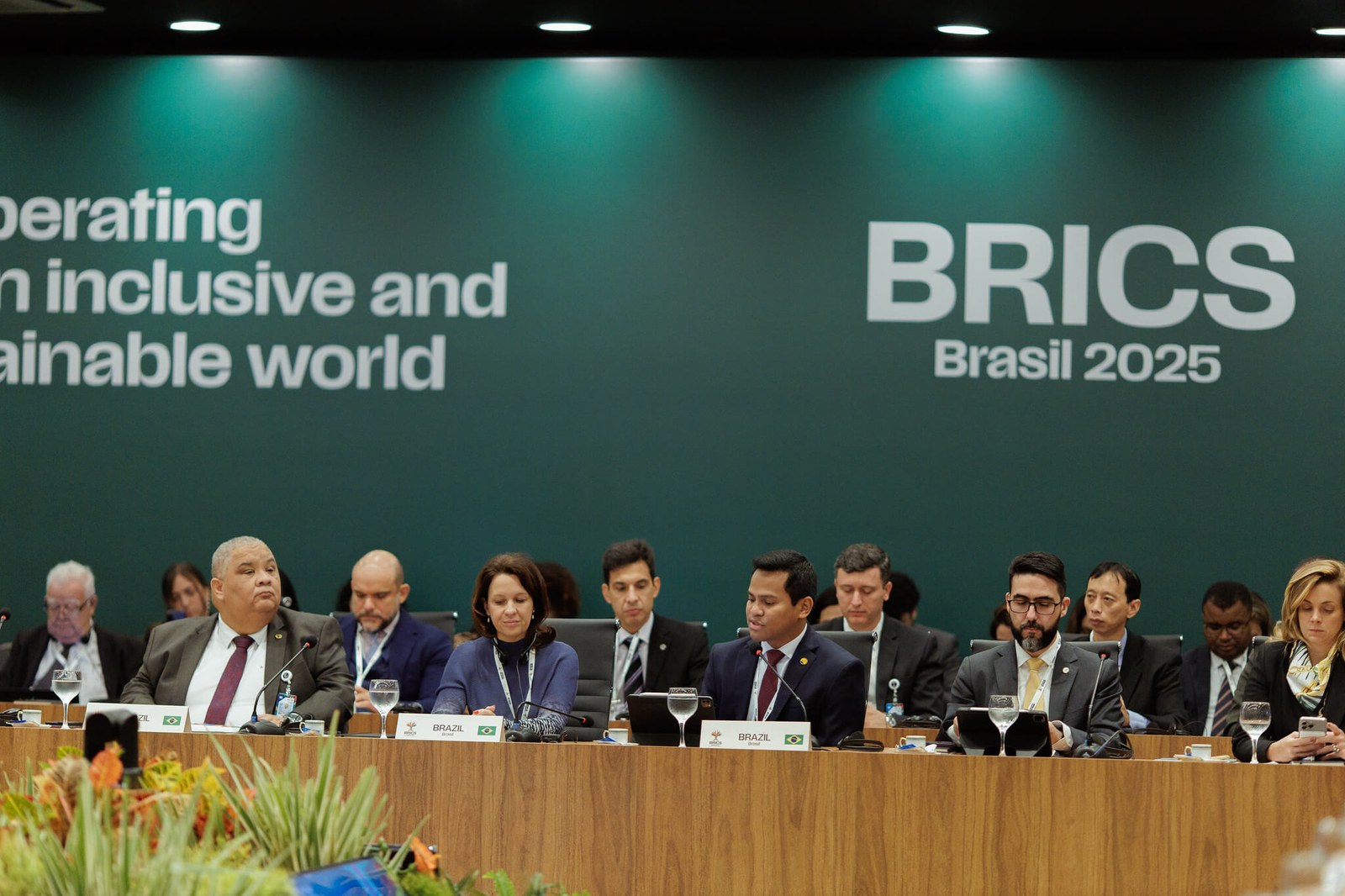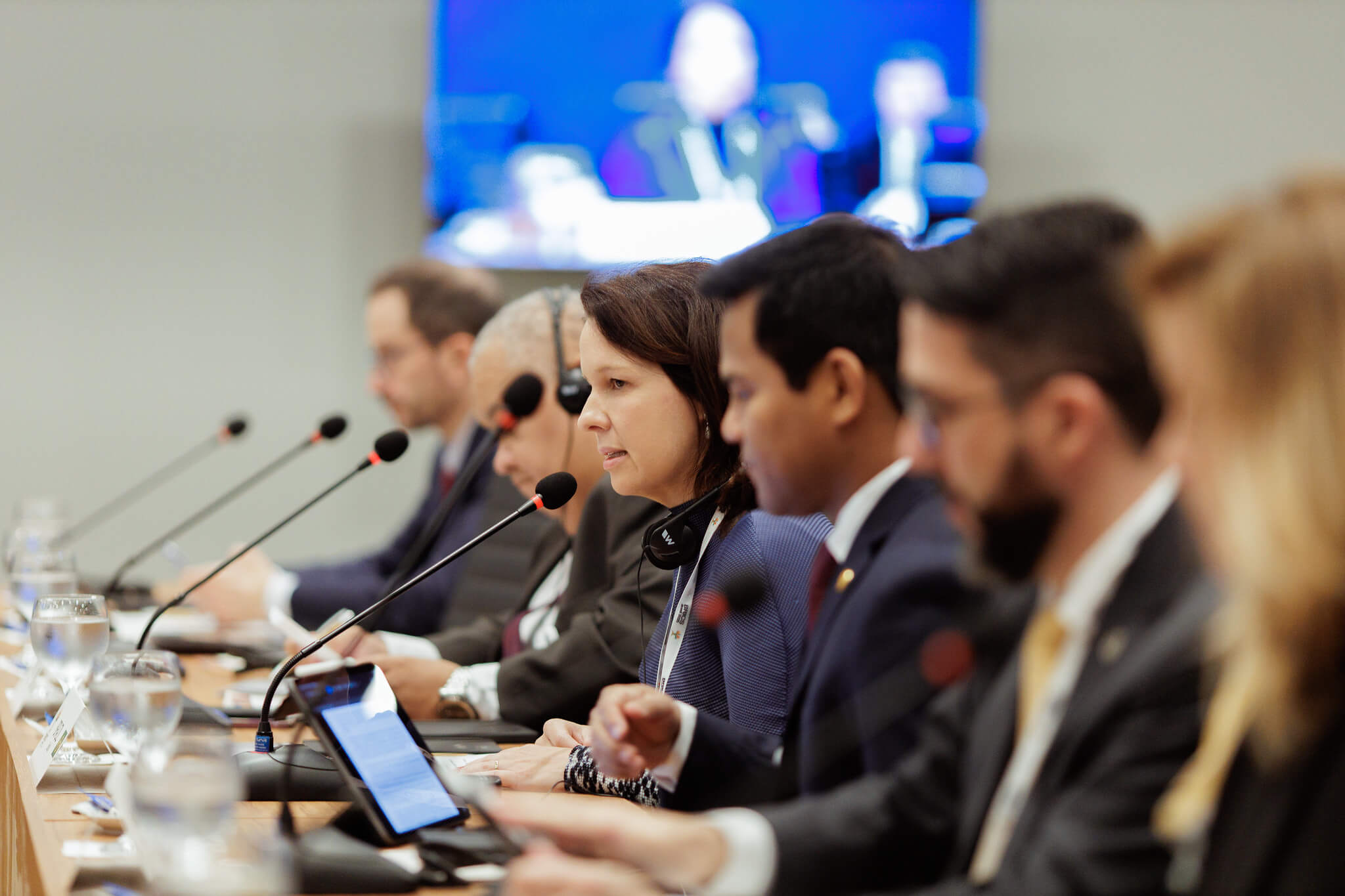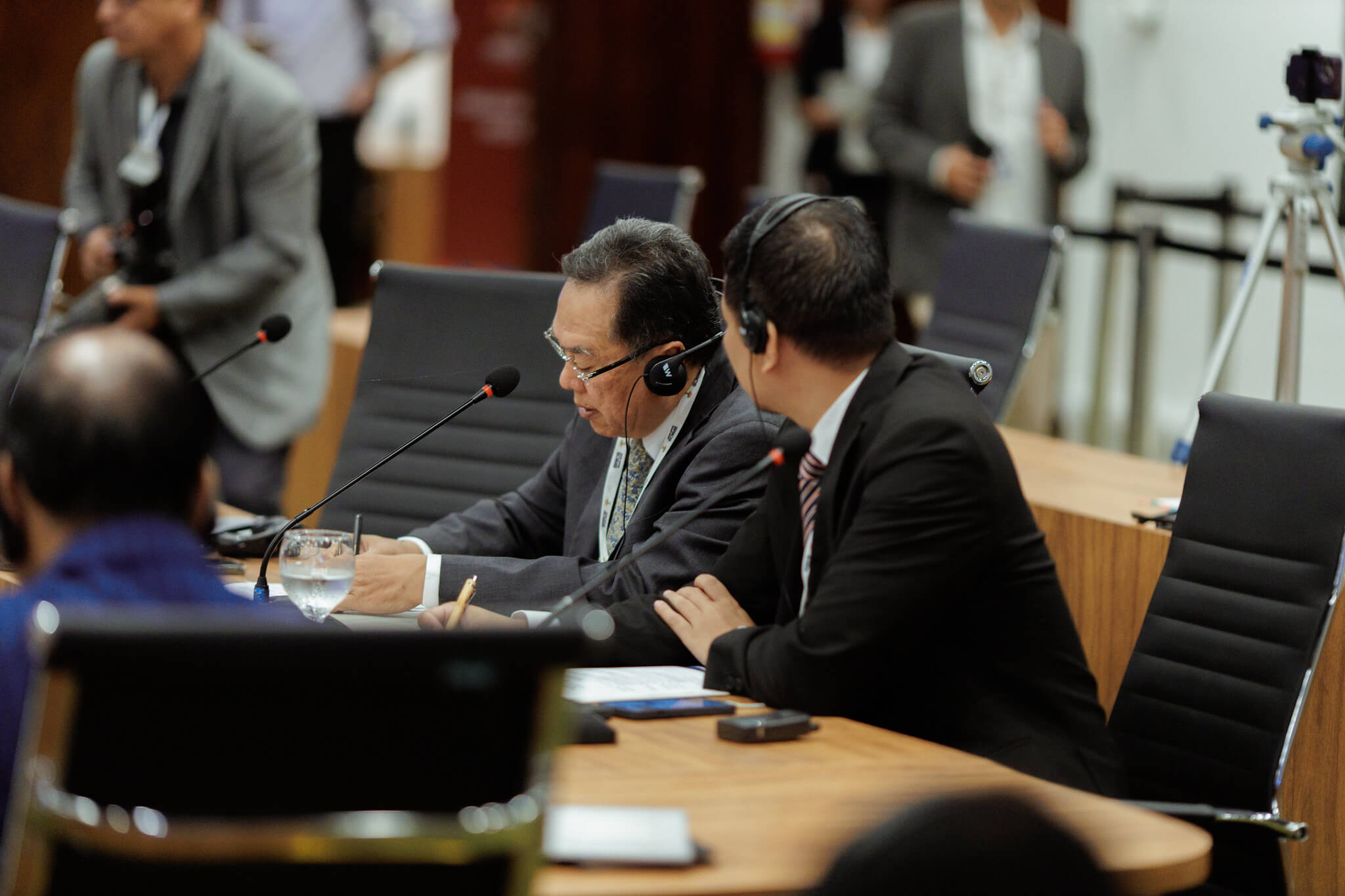Brasil hosts 2nd BRICS Ministerial Meeting on Transport with a focus on sustainability and International Alliance
Resilient infrastructure, decarbonization, sustainable aviation fuels, and the creation of a BRICS Institute for Sustainable Transport, Mobility, and Logistics were also on the agenda

By Maiva D´Auria | maiva.dauria@brics.br
On Wednesday (14), Brasil hosted the 2nd BRICS Ministerial Meeting on Transport, convening authorities from member countries to discuss strategic priorities for the future of mobility and infrastructure. The meeting concluded with the signing of a Joint Declaration, reaffirming the group’s commitment to strengthening cooperation in the transport sector as a catalyst for economic growth, connectivity, sustainability, and development.
Under Brasil’s presidency of the group in 2025, the Declaration outlined six key areas of focus: sustainable and resilient transport infrastructure, decarbonization of ports and maritime transport, sustainable aviation fuels, air connectivity, sustainable urban mobility, and the proposed creation of a BRICS International Logistics Alliance. The meeting was jointly coordinated by the Brazilian Ministries of Ports and Airports (Portos e Aeroportos/MPor), Transport (Transportes/MT), and Cities (Cidades/MCid).
Opening the session, Cloves Benevides, Undersecretary for Sustainability at the Ministry of Transport, underscored the importance of collaborative action:
“Our shared ambition is clear: to use transport as a driver of economic growth, connectivity, and sustainable development. The topics discussed during this meeting are essential to ensure that our countries not only become better connected but also grow in a sustainable and integrated way. Sustainable aviation fuel and the BRICS International Logistics Alliance are examples of how we can innovate and lead in a changing world.”
Sustainable and resilient infrastructure

As part of one of the pillars of the Joint Declaration, the BRICS countries proposed the creation of the BRICS Institute for Sustainable Transport, Mobility, and Logistics (BISTML), which will focus on addressing infrastructure challenges through innovative solutions, promoting regional and interregional integration, and advancing climate-resilient transport systems by adopting environmental practices and clean technologies.
According to Mariana Pescatori, Executive Secretary of the Ministry of Ports and Airports, the establishment of the BISTML is one of the main outcomes of the BRICS Transport Working Group in 2025.
“It is a strategic initiative aimed at fostering innovation, sharing best practices, and addressing infrastructure challenges with environmentally sustainable solutions that are resilient to climate change,” Pescatori emphasized.
The Executive Secretary also highlighted the importance of advancing sustainable urban mobility, with a focus on energy transition, the promotion of active mobility, the renewal of public transport fleets, and the expansion of metro and railway systems. She emphasized that the aim is to create cities that are more equitable, livable, healthy, and less congested.
These topics will continue to be addressed throughout the year at key events, including the General Assembly of the BRICS More Cities and Municipalities Association, scheduled for May 26 to 28 in Maricá (Rio de Janeiro); the BRICS Urbanization Forum, planned for June 23 in Brasília; and during COP30, which will take place from November 10 to 21 in Belém.
BRICS International Logistics Alliance
Another priority pillar highlighted in the Joint Declaration is the strengthening of logistics integration among BRICS countries. In this context, the ministers acknowledged ongoing efforts to establish the BRICS International Logistics Alliance within the framework of the current BRICS Transport Working Group. The initiative seeks to bring together public and private sector representatives on a joint platform aimed at enhancing connectivity among member countries and strengthening their collective capacity to respond to climate-related disasters and other emergencies.

Newly integrated into the group, Indonesia underscored the importance of cooperation in the transport sector as a key driver of economic growth and enhanced global connectivity. During the Ministerial Meeting, Indonesia’s ambassador to Brasil, Edi Yusup, expressed the country’s enthusiasm for joining BRICS and reaffirmed its commitment to participating in joint initiatives. “Indonesia is very proud to be part of BRICS, especially in the transport sector. Increasing connectivity among members will help build stronger links, boost the economy, and attract new investments,” he stated.
Decarbonization of Ports and Maritime Transport and Sustainable Aviation Fuel (SAF)
The Joint Declaration also highlights two additional pillars as strategic priorities: the decarbonization of ports and maritime transport, and the promotion of sustainable aviation fuels (SAF). Both efforts underscore the BRICS countries’ commitment to reducing greenhouse gas emissions and advancing the transition to a low-carbon economy, in alignment with the goals of the Paris Agreement and the 2030 Agenda for Sustainable Development.
In the maritime sector, decarbonization is regarded as essential to ensuring cleaner and more resilient operations that respond effectively to current climate challenges. This approach reinforces the group’s alignment with the global climate agenda and the urgent need to reduce the environmental impact of the transport sector, with the ambition of positioning BRICS as a model of environmental responsibility.
The decarbonization of ports and vessels not only reduces emissions but also fosters economic growth and helps protect ecosystems. Deeper collaboration among BRICS countries can accelerate the development and deployment of green technologies, including zero-emission fuels and renewable energy sources for port infrastructure.
In the aviation sector, expanding the use of Sustainable Aviation Fuels (SAF) is a critical step, as aviation remains one of the fastest-growing sources of greenhouse gas emissions. For BRICS members—who collectively represent a substantial share of global air traffic and economic activity—joint efforts to advance SAF development offer a dual opportunity: to lead in the transition to sustainable aviation and to reinforce their commitment to the global climate agenda.
In this context, India’s Minister of Transport, Nitin Gadkari, emphasized three foundational pillars for sustainable development: ethics, economy, and ecology. “We need to protect the environment, and the carbon crisis the world is facing is a critical issue. Pollution caused by the burning of waste is a major challenge. That is why it is essential to explore ways to clean the Earth’s atmosphere. This is precisely one of the missions of the BRICS meetings: how we can reduce global pollution, protect the environment, and preserve life through the use of alternative fuels and biofuels, especially in the transport sector and also in aviation, where we are already considering green solutions. This is extremely important for the future of the planet,” the minister stated.
BRICS Family
Russian Deputy Minister of Transport, Vladimir Poteshkin, expressed gratitude to Brasil for hosting the meeting and highlighted the importance of transport in today’s global context. He noted that transportation is vital for connecting people and driving economic development. “Many people around the world enjoy traveling from one place to another. That is why it is so important to organize railways, land, and maritime transport. This is fundamental for the economy of our countries and for communication among them.”
For Poteshkin, the BRICS meeting provides a valuable platform for member countries to showcase their progress and foster exchanges on strategic issues. “From today, we are confident that the purpose of this event is highly significant for everyone. The BRICS family is doing remarkable work to demonstrate to other nations how we are advancing discussions on the environment, economy, education, and other key matters. This is our opportunity, and the main idea is that we need to move forward together with all the countries in our BRICS family.”